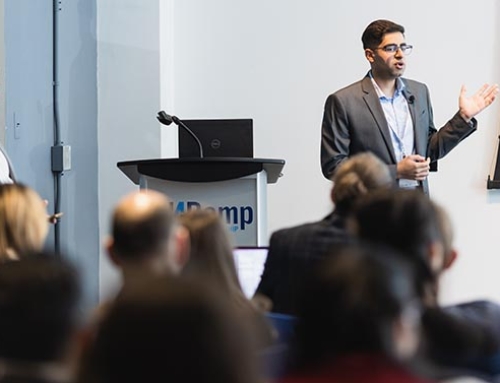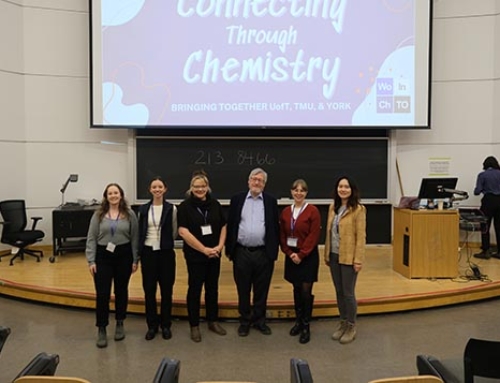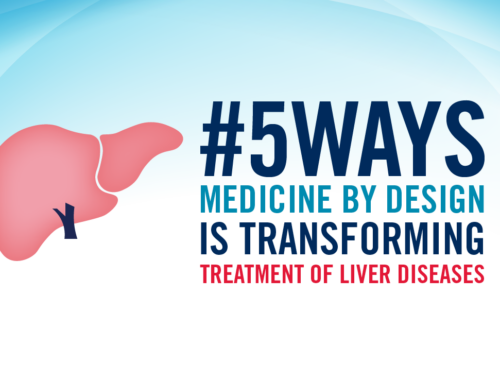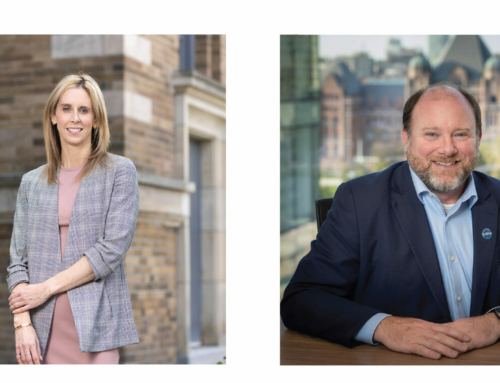
Medicine by Design’s 5th Annual Symposium will welcome regenerative medicine leaders from across North America.
Convergence —the integration of approaches from engineering, science, medicine and other fields to expand knowledge and spark innovation — has been called the future of medicine.
And on Dec. 7 and 8, the global regenerative medicine community is invited to come together at Medicine by Design’s 5th Annual Symposium to explore how convergence is advancing and accelerating discoveries and translation in regenerative medicine and biomedical sciences more broadly.
The symposium will feature talks by regenerative medicine experts from around North America, and will place a special focus on Medicine by Design research that demonstrates the role of convergence in advancing regenerative medicine and transforming human health. Focus areas include ageing, immunoengineering, biomaterials and translation.
“Convergence is enabling us to make advances in regenerative medicine that would have been unthinkable even 10 years ago,” says Michael Sefton, executive director of Medicine by Design, and a University Professor in the Department of Chemical Engineering & Applied Chemistry and the Institute of Biomedical Engineering at the University of Toronto (U of T). “It is at the heart of everything we do at Medicine by Design, and is driving our Grand Questions Program, which we believe will transform regenerative medicine research for decades to come by tackling long-standing challenges in the field.”
Medicine by Design will welcome the following slate of external speakers:
- Victor Dzau is president of the United States National Academy of Medicine (NAM) of the United States National Academy of Sciences, and he will be speaking about NAM’s Healthy Longevity Global Grand Challenge, which helped inform Medicine by Design’s Grand Questions program.
- Sarah Heilshorn is an associate professor in the Department of Materials Science and Engineering at Stanford University. Her lab specializes in designing biomaterials using materials engineering and protein science. She will speak on the theme of biomaterials to renew tissues.
- Robert Langer, Institute Professor, Massachusetts Institute of Technology (MIT), is a biotechnology and materials sciences pioneer who has founded more than 40 companies, published 1,500 articles, and had more than 400 companies license or sub-license his lab’s patents. He is academic co-founder of Moderna Inc., which recently announced positive interim results from a phase 3 clinical trial of a COVID-19 vaccine candidate it has developed based on messenger RNA technology. Professor Langer will bring his profound experience in academic entrepreneurship to the session on translation.
- Megan Levings is a professor in the Department of Surgery and School of Biomedical Engineering, University of British Columbia. She is internationally recognized for her work on inducing immune tolerance with T regulatory cells. Professor Levings will be speaking on the theme of immunoengineering to induce tolerance.
- Kenneth Walsh, the Lockhart B. McGuire Professor in the Department of Internal Medicine at the University of Virginia, will be speaking in a session focused on inflammation. Professor Walsh’s lab looks at how age-related mutations in immature blood cells contribute to many chronic diseases.
- Kim Warren, co-founder and past chief manufacturing and technology officer at AVROBIO, will be speaking about the lessons she has learned in translation. AVROBIO is a clinical-stage company using lentiviral-based gene therapy and the patient’s own cells to restore normal gene function.
Several Medicine by Design investigators who are leading large team projects centred on the symposium’s themes will also be speaking:
- John Dick, senior scientist, Princess Margaret Cancer Centre, University Health Network (UHN);
- Dr. Shaf Keshavjee, surgeon-in-chief, UHN;
- Andras Nagy, senior investigator, Lunenfeld-Tanenbaum Research Institute, Sinai Health System;
- Clinton Robbins, senior scientist, Toronto General Hospital Research Institute, UHN; and
- Juan Carlos Zúñiga-Pflücker, senior scientist, Sunnybrook Health Sciences Centre, and chair, Department of Immunology, U of T.
Read more about Medicine by Design team projects.
The symposium will also feature three talks and 45 poster presentations by trainees in Medicine by Design-funded labs
“Our annual symposium has always been a wonderful opportunity to gather together as a community and share our research successes,” Sefton added. “With this new virtual format, we are looking forward to showcasing Medicine by Design and our exceptional roster of speakers to a global audience.”
Please visit the symposium web page for more detailed information about Medicine by Design’s 5th Annual Symposium and how to register. Registration will close on Nov. 30.
About Medicine by Design
Medicine by Design builds on decades of made-in-Canada excellence in regenerative medicine dating back to the discovery of stem cells in the early 1960s by Toronto researchers James Till and Dr. Ernest McCulloch. Regenerative medicine uses stem cells to replace diseased tissues and organs, creating therapies in which cells are the biological product. It can also mean triggering stem cells that are already present in the human body to repair damaged tissues or to modulate immune responses. Increasingly, regenerative medicine researchers are using a stem cell lens to identify critical interactions or defects that prepare the ground for disease, paving the way for new approaches to preventing disease before it starts. Medicine by Design is made possible thanks in part to a $114-million grant from the Canada First Research Excellence Fund.






